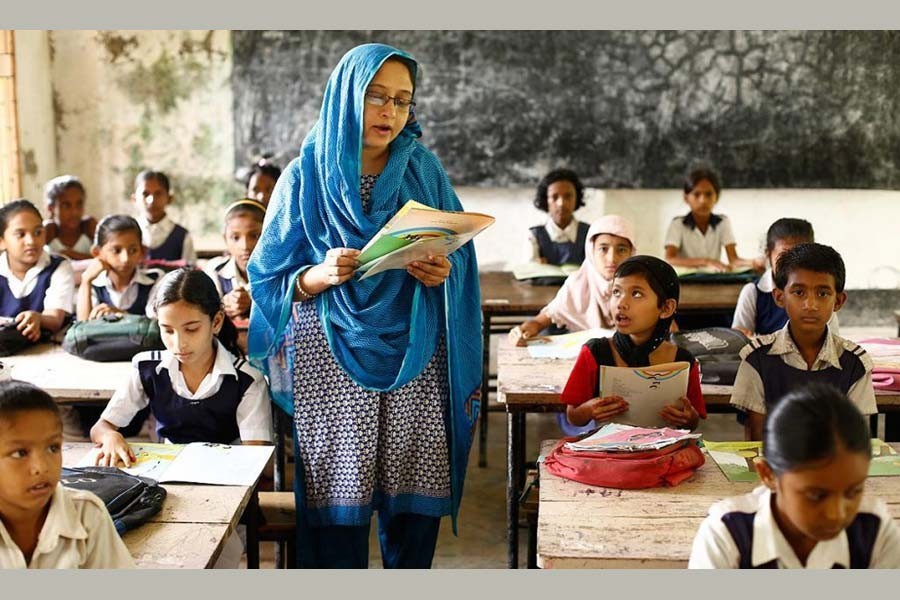
Published :
Updated :

Article 17 of the Constitution of Bangladesh mandates that the state shall establish a uniform, mass-oriented, and universal system of education, providing free and compulsory education to all children up to a level determined by law. The Primary Education (Compulsory) Act of 1990 makes education up to Class V both free and mandatory, while the National Education Policy 2010 extends this mandate up to Class VIII. In reality, however, education in Bangladesh is becoming increasingly costly-both financially and socially.
According to the Annual Primary School Census (APSC) 2023, approximately 19.7 million children are enrolled in primary education across the country. Of these, nearly 11 million attend government-run institutions. The remaining 44 per cent study in private institutions, kindergartens, and madrasas-where education comes at a price. Despite constitutional and legal commitments, the state's provision of free education remains insufficient and, for many, unattractive-especially in urban centers.
Dhaka paints a particularly troubling picture. Only 19.6 per cent of primary-level students in the capital are enrolled in government schools. This means that over 80 per cent of children in Dhaka are receiving their primary education from private institutions.
Why is education-promised to be free and universal-becoming increasingly expensive? The answer lies in the inadequacy and declining performance of government schools, which has paved the way for the unchecked expansion of private institutions.
Government primary schools in Dhaka largely serve children from the poorest families-those who have no other options. These schools often lack even the most basic amenities: clean drinking water, functional toilets, adequate classrooms, and sufficient staff. Many classrooms are overcrowded and poorly lit. Some school premises have even been illegally occupied by powerful local actors. This is more than administrative failure-it is a violation of children's constitutional rights.
Let us confront an uncomfortable truth: if government primary schools served the children of the upper and middle classes, would their conditions be allowed to deteriorate? Certainly not. If the children of influential families attended these schools, the government would rush to upgrade facilities, appoint quality staff, and implement real reform. But because these schools primarily serve disadvantaged communities, their dismal condition has become both politically and socially tolerated.
As a result, more and more parents are turning to private schools in the hope of securing better future for their children. Access to quality education-a right enshrined in the Constitution-is increasingly being determined by wealth. With soaring tuition fees, the rising cost of textbooks and school supplies, and an ever-growing reliance on private coaching, quality education is becoming a luxury many families can no longer afford.
This has led to a disturbing trend: a child's access to education is now dictated more by the financial status of their parents than by the child's potential or merit. When poverty becomes a barrier to education, it entrenches cycles of disadvantage and denies generations of children the chance to improve their socio-economic standing. This not only deepens inequality but also undermines national progress. Ensuring equal access to quality education is essential for building an equitable, inclusive, and prosperous Bangladesh.
To change course, bold and decisive action is needed-starting with Dhaka. At least one well-equipped model government school should be established in each ward of the city. These schools should have better infrastructure and facilities, employ qualified and motivated teachers, and offer a modern, engaging curriculum. Once these schools begin producing strong academic results, they will help restore public confidence in government education and encourage greater enrollment. It would offer great relief to low- and middle-income families who are struggling with the rising costs of private schooling.


 For all latest news, follow The Financial Express Google News channel.
For all latest news, follow The Financial Express Google News channel.